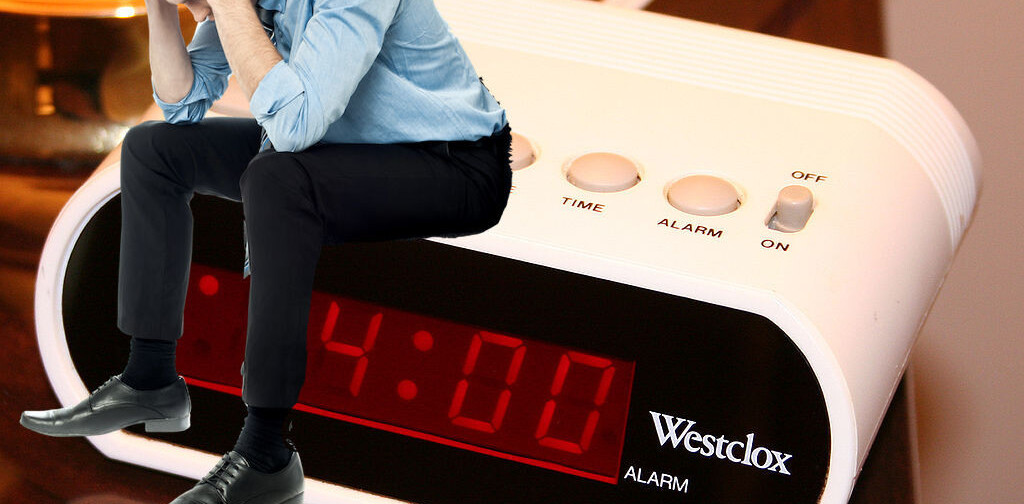
We live in a busy world. Whether you’re looking around online or off, there’s “stuff” going on all around us. Some of us are trying to keep up and some of us aren’t. Either way, both parties are inevitably going to miss out on some of this “stuff” I’m alluding to. And that’s because we all need to look at not only why we’re missing out, but how we can avoid missing out on as much as we do. This is when levels of personal productivity come into play.
So, how do you “level up” your personal productivity? Well, here are 10 things that you need to do to be supremely productive.
1. Map out the really important stuff.
No one can tell you what is important to you — that’s a choice only you can make. But unless you do make that choice on regular basis, you’ll find that the important stuff gets buried behind a mass of stuff that you have to do rather than want to do. That stuff has become “urgent”, and urgent always manages to outweigh importance unless you keep urgency at bay.
You need to map out the stuff that is really important to you, not just in “work life” but in other aspects of you life, and be clear about that map once it’s been made. Keep it on hand and visible, whether digitally or on a piece of paper taped to your workspace so that you don’t lose sight of it (both literally and figuratively). Before you start using any tools to make sure you get there, you need to figure out where “there” is. And the best way to find it is with a map…a very important map.
2. Pick a system and stick with it for at least 90 days.
If you’ve ever Googled “personal productivity system”, you’ll find that you can spend more time looking for ways to help you be more productive than you can actually being more productive. Spend very little time searching for one, and more time working with one. You’ve likely got an idea of what you’re best suited for (whether you’re a digital or analog person, whether you want to have a software solution that is web-based or a mobile app, etc.), so figure out what is going to work for you and give that system a try.
Look for no more than a week before settling on one, and then stick with it for at least 90 days. You’ll need that length of time to get really familiar with the system you’ve chosen, but also you’ll need that length of time to get into the habit of working inside any system at all. If, after 90 days, you’ve found that you’ve made the system work for you then you’re in great shape. If it doesn’t, then you’ll be able to move on to another and the learning curve won’t be as steep. Remember, the goal is to “be” supremely productive, not to “do” supremely productive.
3. Don’t use a calendar for to do items.
No matter what system you come up with, don’t put to do items on a calendar. Calendars are meant to handle scheduled items and appointments only. If you’re blocking out time for rejects, writing, lunch, then that’s fine. Same with any scheduled appointments or meetings. But anything that does not have a set time shouldn’t even touch the pages of your calendar.
This goes for deadlines as well, because essentially these things are often tasks that need to be done by a certain date. If you’re having to put deadline dates in your calendar, then you’ve got a much bigger problem on your hand than knowing when the deadlines are…and that problem is that you’re leaving things to the point where the deadline actually matters.
4. Empty your head regularly.
Your brain can only hold so much information. Homer Simpson famously said that every time he learned something new that something else he had learned before fell out of his brain. You need to drain your mind regularly, and that means writing stuff down or capturing it in some other fashion. Again, how you do so depends on what method works best for you. But if you don’t empty your head then it will be far too full to handle very much of anything.
5. Don’t be afraid to break familiar patterns.
Bogging yourself down with too many tools or the wrong tools at the wrong time will only slow down your productivity. If you’re working away on your laptop and an idea comes to mind, opening another app to capture that idea might be the best option for you because you’re already working on the device. But it may also get lost in the shuffle. Breaking a familiar pattern by writing the idea down on paper or recording it by voice into your mobile device can create a trigger that keeps that idea far more accessible than plunking it in your laptop. Mixing it up isn’t always a bad idea, and it can actually make the process of discovery part of your workflow. And allowing the mind to explore and wander can actually build on productive habits.
6. Disconnect often.
Human beings can’t be “tapped in” all the time. We need down time. You can schedule the down time or just let it happen, but you need to do it often. If you’re always on the go then you’ll never know how to properly stop and get the rest you need, so take the time to step back and remove yourself from the equation. You’ll prolong your passion for your pursuits, gain further insight and keep perspective by doing so.
7. Get up early.
Sleeping in is one of the worst things you can do to enhance your productivity. While you son’t have to be rising at a ridiculous hour, by getting up in the early part of the morning you may surprise yourself with how much more you can get done in a day. Staying up late may give you a jump on tomorrow, but if you don’t jump out of the gate in the morning than you’re going to be playing catch up all day. You may be ahead of the pack because you burned the midnight oil, but you certainly won’t feel like it.
8. Be proactive.
Living in the moment is fine when you’re already ahead of the game, but when you’ve got a lot on your plate it is very difficult to live at all, let alone in the moment. By setting realistic expectations and benchmarks for your tasks and goals, you’ll be proactive by default. Being reactive often results in sloppy and panicked results — and it shows. Being proactive allows you to actually craft what you’re doing with superior quality and effort. Time is on your side when you’re proactive, and time can be your worst enemy when you let it control you. So don’t let it.
9. Embrace curation.
Take a good hard look at what you’re spending your time on (and in). Be honest with yourself and examine what is stealing your attention away from what you need to be doing in order to be supremely productive. Then either manage that with a deliberate approach or, if you can’t afford the willpower, eliminate it altogether. Television is a big one here. I cut cable out of my life a couple of months ago and have been able to create a lot more since I did, because I’m not able to flip a switch and watch what someone else has created. I’ve started using Netflix to watch what I want and when I want, but there is some effort involved. It’s not just a press of the button and images magically appear on the screen. Absorbing what I want rather than wading through what is offered on television has greatly enhanced my productivity. I’m curating my television habit, and I’m far better for it.
10. Forget Inbox Zero.
You’re going to get email. Deal with it. Spending all of your time trying to clear it all out every day (or week) is more wasteful for many than watching television. Again, absorb what you want rather than wade through what is offered. Create a folder within your email client and call it “Keepers”. Drag what you feel you must keep into that folder, and then delete the rest periodically. Review the “Keepers” folder daily, and delete what’s been dealt with when you’re ready. Don’t get bogged down in email. It’s not worth it, and it’s one of the biggest factors as to why so many of us aren’t supremely productive.
Pushing through the urgent stuff and getting to the important stuff is a lot easier when you’ve set yourself up to succeed. The details will start to rise to the top the more you are able to pay attention to them. By mapping out the course, discovering what works best for you and clearing and curating the path along the way, you’ll find that being supremely productive isn’t all that difficult. Getting started may seem to be the hardest part, but it’s actually the waiting to get started that is the hardest part.
So what are you waiting for?
Get the TNW newsletter
Get the most important tech news in your inbox each week.





